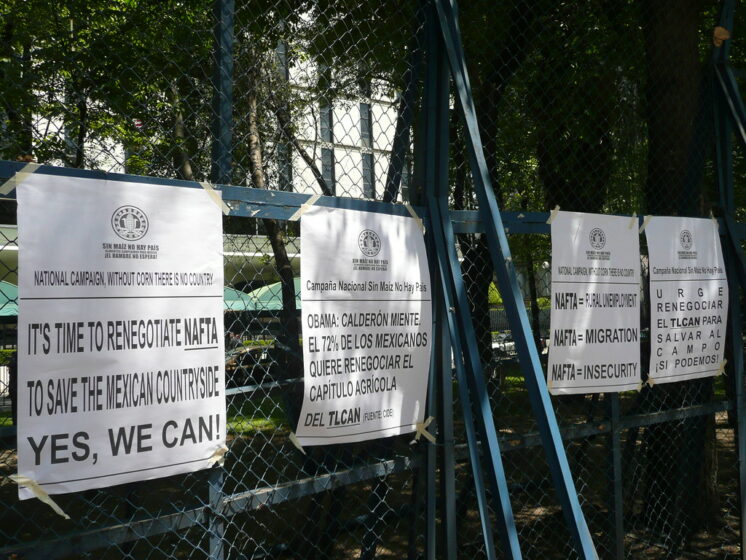The North American Free Trade Agreement, agreed in 1994, governed and encouraged the entanglement of cross-border supply chains. Mexico is the second-largest US trading partner, behind China, with goods from the maquila sector making up more than half of Mexico’s exports. Nafta was intended to boost the rights of workers in Mexico. However, wages have grown slowly, and the gap between American and Mexican workers has widened.

The renegotiated and revised North American Free Trade Agreement (Nafta), which now become US-Mexico-Canada-Agreement (Usmca), came into force in 2020. The consequence of the deal is Mexico to adopt a new labor law. The other is to create the Rapid Response Labor Mechanism, which aims to impose quick punishment directly on multinational companies that violate labor rules.
The mechanism, in short, is a game of bureaucratic ping pong in Mexican bureaucracy and a complicated process. If labor violations are alleged at a specific factory, either by outside petitioners or the US government itself, a US inter-agency labor rights group reviews what’s going on there. Mexican officials can review the alleged violations and offer a plan to remedy them. But if they ignore the allegations, disagree about how to fix them, or take more than 45 days in doing so, an independent panel made up of nominees from both countries is created to make a final, written report on what’s going on and what must be done.
A case in Tridonex, an American company, shows how the mechanism was done. Tridonex is a subsidiary of an American company called Cardone. Cardone was founded in 1934 to manufacture and refurbish auto parts; in 2005, it opened its first subsidiary plant in Mexico. In 2016, it moved its brake division to Mexico, laying off or furloughing nearly 2,000 American workers in the following three years. In 2019, the family-owned business was purchased by the Canadian private equity firm Brookfield, which emphasizes its commitment to “environmental, social, and governance” (ESG) practices.
Read more here.










